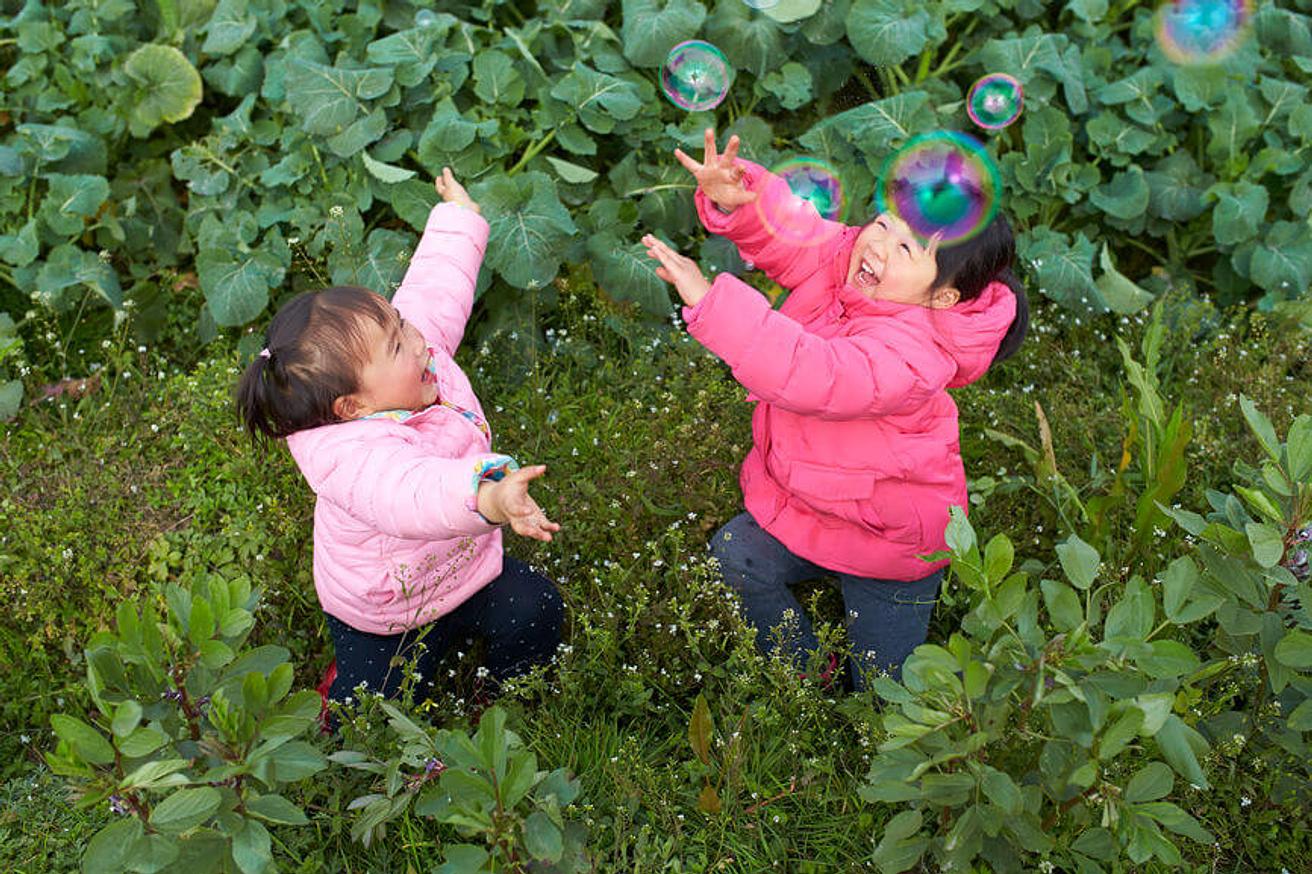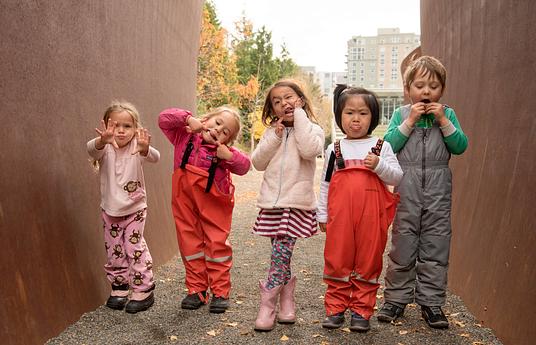Around the world, educators, parents and preschoolers are eschewing the traditional education system for their youngest ones and nature-based learning is taking the helm. One of the biggest challenges in creating an effective nature-based preschool though is the fact that increasingly our populations are becoming heavily city-based. How can we provide city children with an outdoor learning experience so they too feel a connection with the natural world and build a love for learning and exploring?
In Seattle, Tiny Trees Preschool are tackling this issue. Through utilizing the opportunities in public parks, Tiny Trees makes high quality preschool accessible for working families. By building outdoor classrooms in public parks, Tiny Trees eliminates the brick and mortar facility and invests in what matters: financial assistance for low-income families and supporting teachers. Their program is now the largest outdoor preschool in North America, reaching 315 children across 9 parks.
‘As the largest outdoor preschool in North America, we are committed to furthering the field of early outdoor education, changing the game for preschool in Washington and beyond,’ explains Katie Weiss, Philanthropy and Communications Manager at Tiny Trees. Tiny Trees was founded in 2014 with support from Seattle’s Social Venture Partnership Fast Pitch Competition. The first classrooms opened in 2016, and now have twelve classrooms in nine parks.
For Weiss, nature is a great learning environment because of its variability, creating interesting scenarios and moments for young children to learn from in an organic way. ‘We believe that nature cultivates and grows the sense of wonder and curiosity that children innately have,’ explains Khavin Debbs, Partnerships Manager at Tiny Trees Preschool.
It is through this variability and the sheer fact that it is a world of living creatures and plants that helps children to learn empathy, socio-emotional and executive functioning skills, and learn how to take care of themselves. ‘As the seasons and weather changes, so do the learning opportunities that nature provides,’ says Weiss. ‘Children in outdoor preschool learn skills of self-regulation, self-advocacy and independence. Daily time spent outside in all weather requires children to be aware of their bodily needs, and to make adjustments independently or with the support of a friend or adult. By learning to adapt to changing weather and circumstances daily, children attending outdoor preschool learn to be flexible and adaptable in new environments.’
Introducing children to the mechanics of nature also helps them to start to build their basic science, maths and literacy skills. ‘Rain and snow offer opportunities to engage with the water cycle, migrating birds lead to lesson plans on types of birds and their homes, and budding trees and plants show children what effects rain, sunlight and weather have on the nature around them,’ explains Weiss.

Tiny Trees Preschool serves some of Seattle’s lowest socioeconomic areas, which is a conscious decision made by the people behind the preschool. ‘An investment in a child's education is the greatest investment you can make for their later life success,’ says Weiss on this decision. ‘The earlier that investment is made, the greater the impact. Every parent wants a bright future for their child, and parents know that a high quality preschool education is essential for their child’s future success. But for many families the high cost forces them to make a choice between their child receiving a quality education or meeting basic needs like housing, food, or health care; a heart-wrenching decision for any parent.’
The rising costs of preschool coupled with the rise in basic necessities such as food and housing, whilst incomes remain stagnant, disproportionately affects low-socioeconomic families and communities of color. ‘60% of Washington’s children do not attend preschool and enter kindergarten 2 years behind their peers,’ explains Weiss. ‘Children who do not attend preschool are more likely to dropout of school, not graduate high school and spend time in jail. Affordable, accessible, quality preschool programs are a core investment in the future of healthy and resilient children, families, and communities.’
Reaching our most vulnerable children in the formative years before school has the biggest impact on how well a child does later in life. Tiny Trees recognizes the power preschools can have for children who are at risk of dropping out of school later down the line, or falling into criminal activities as they grow older, by making sure that their intake is mixed and that they serve communities who are the most at risk.
‘We recognize that systemic inequities have disconnected far too many children from nature-based learning experiences, and have also made preschool inaccessible for some,’ mentions Kellie Morrill, Executive Director at the Tiny Trees Preschool. ‘We are committed to removing barriers to access nature and high quality early learning programs and will continue to invest in this work as we grow and evolve. As rich biodiversity contributes to healthy ecosystems, we believe that diversity in our teachers, staff, and families contributes to healthy communities’ shares Weiss. As such, 50% of families enrolled at Tiny Trees receive free or reduced tuition, 30% are children of color and more than 30 different home languages are spoken by Tiny Trees students.

One of the barriers facing this type of education becoming the norm for every child, and not just the privileged or those who have savvy parents who are switched on to the health and learning benefits of nature-based education, is showing the results of this type of education. Tiny Trees is attempting to prove the long-term impact of their work by partnering with researchers at Washington State University. ‘The focus is on tracking physical health, specifically gut microbiome and movement, with the potential for tracking emotional skill development and academic achievement over 5 years,’ explains Weiss. ‘The results from our preliminary study have shown that obesity decreased by 14% (from 37% to 23%) over 9 months for Tiny Trees students. An expanded study will begin in September of 2019, with a larger number of participants and a wider range of outcomes measured. Our goal is to identify the lifelong impact of outdoor preschool.’
Seattle is a practical example for other cities to learn from, showing that compromise doesn’t have to be necessary in order to meet the needs of our youngest and most vulnerable citizens. Tiny Trees shows how outdoor learning can be accessible and achievable for our world’s city-based children, and how we can start to overcome inequality in our societies through nature-based learning. Through this high-quality outdoor education, we can ensure every child has the best possible preschool experience, and ensure they have the best chance at success later in life.
Learn more about Tiny Trees Preschool by checking out their Innovation Page.

